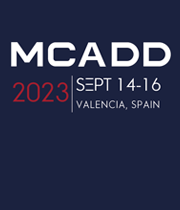Computer Aided Drug Design-CADD
Computational techniques are useful tools for interpreting and guiding trials in order to speed up the development of antibiotic drugs. Computer-aided drug design (CADD) is a broad term that refers to a variety of theoretical and computational methodologies used in modern drug development. CADD approaches have aided in the development of medications that are currently in use or are through clinical testing. Along with the experimental procedures employed in drug creation, such methods have emerged and evolved. Despite the fact that multiple antibiotic medications are available and have been routinely used for far longer than most other drugs, the battle between humans and the bacteria that cause diseases is still going on and will continue for the foreseeable future. The continual rise in antibiotic drug resistance, which necessitates the development of new antibiotics, is contributing to this. To clarify the mechanism of drug resistance, seek for new antibiotic targets, and develop novel antibiotics for both known and unknown targets, computer-aided drug design (CADD) can be integrated with wet-lab techniques to design new antibiotics. CADD approaches, for example, can generate an atomic-level structure-activity relationship (SAR) that can be used to speed up and reduce the cost of drug development.
- Target Identification
- Structure Determination
- Synthetic Chemistry
- Target Structure
- Nanotechnology
- Molecular Dynamics


Title : A qsar survey on tyrosine kinase inhibitors
Atefeh Hajiagha Bozorgi, Faculty of pharmacy, Iran (Islamic Republic of)
Title : Abbott diagnostics: COVID-19 inactivation, nucleocapsid antigen automated immunoassay development, and variant testing for automated and lateral flow assays binaxnow™ and panbio™
Philip M Hemken, Abbott Laboratories, United States
Title : Synthesis, antibacterial activity of 3-amino 5-methoxyl-2-methyl quinazolin-4(3H)-one an amino-6-methoxyl-2-methyl of 4H–benzo[d] [1,3]–oxazine–4–one
Osarumwense Peter Osarodion, Ondo State University of Sciences and Technology, Nigeria
Title : Tackling mycobacterium tuberculosis resistance with tailored isatin-pyrimidine hybrids enoyl acyl carrier protein reductase (Inha)
Amgad Albohy, The British University in Egypt (BUE), Egypt
Title : Transition metal complexes/Organometallic compounfs as anticancer drugs
Prakash kinthda, Nims university,jaipur,rajasthan, India
Title : New n-ribosides and n-mannosides of rhodanine derivatives with anticancer activity on leukaemia cell line: Design, synthesis, dft and molecular modelling studies
Ahmed, Kafrelsheikh University, Egypt